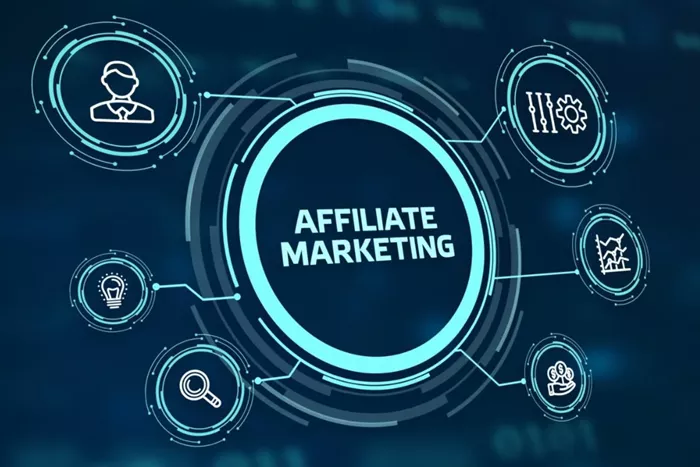In this week’s SEO consultation, we analyze the impact of artificial intelligence (AI) on affiliate marketing and explore how strategies must evolve to deliver better results.
A recent question from Mike R. captures the industry’s current concerns: “How will AI change affiliate marketing strategies in 2025? I worry my current methods might become outdated, but I’m unsure which new technologies are truly worth adopting.”
Mike, that’s an excellent question. Several trends are reshaping affiliate marketing — some promising, others challenging. When implemented properly, AI can help businesses and brands grow through affiliate channels. However, improper or premature use of AI by three key affiliate types could backfire.
Affiliate marketing is not merely about creating content or coupon sites; it encompasses a blend of marketing channels including email, SMS, online and offline communities, pay-per-click (PPC), media buying, and even print. Unlike SEO and content marketing, which AI has heavily disrupted, affiliate marketing is poised to evolve and strengthen with AI integration.
1. Affiliates: Content Creators, Publishers, and Media Companies
Affiliates promote brands to earn commissions for actions like sales or leads. Here’s how AI is influencing this segment:
Programmatic SEO and Content Creation
Programmatic SEO is not new. Using large language models (LLMs) to generate content or product lists has often degraded website quality, leading to penalties. Past attempts with automated content, such as article spinners or PHP-generated product pages, resulted in diminished value and search ranking penalties.
If affiliate managers advise using LLMs for automated content creation, brands should be cautious and seek other guidance. Since the rise of ChatGPT and similar tools, several quality sites have declined due to AI-generated, unverified content.
Content and Creator Value
Traditionally, affiliates needed to drive sales to be valued. AI is changing this by citing content from bloggers, YouTubers, and social influencers as trusted sources, even when direct sales or traffic are limited. This shift presents opportunities for affiliates to charge for AI-generated citations that boost brand exposure.
Coupon Sites and Sales Funnel Impact
Coupon sites face significant challenges as AI begins generating effective coupon lists directly, sometimes bypassing affiliate tracking. AI-powered tools like Google’s AI overview or ChatGPT can provide discounts and codes without clicks on coupon sites, impacting their traffic and commission opportunities.
Though coupon sites still provide value through email lists and social media for top-funnel traffic and re-engagement, brands must adapt to AI’s changing landscape.
2. Affiliate Managers and Agencies
Affiliate managers oversee programs, recruit affiliates, provide tools, and ensure accurate tracking and sales reporting. AI is affecting this role in several ways:
Traffic Loss on Content Sites
Managers relying heavily on SEO-ranked content sites see reduced traffic as AI overviews pull information without sending users to affiliate sites. Diversifying channels to include Discord, niche platforms like Skool, social media groups, YouTube, and influencers can offset losses.
Fraudulent Affiliate Accounts
An increase in fraudulent accounts masquerading as legitimate publishers is alarming. These accounts may communicate professionally but often involve stolen credit cards or non-existent websites. Vigilance against AI-generated or low-quality content sites is essential to minimize fraud risk.
Content Accuracy and Brand Safety
AI-generated affiliate content can lack factual accuracy or brand compliance, especially in sensitive areas like finance or health. Brands must enforce rules to prevent AI-created content from representing them unless it meets strict standards.
Partner Matching and Approval
AI and machine learning assist in matching affiliates to programs based on verticals or audiences. However, automated approvals risk enrolling mismatched affiliates who may harm brand reputation or violate program terms. Manual review remains crucial to ensure compliance.
Recruitment and List Building
AI excels at identifying potential partners, performing gap analyses, and drafting outreach emails, saving significant time. While manual review and customization are necessary, AI tools are increasingly valuable in recruitment workflows.
3. Affiliate Networks
Affiliate networks provide tracking, payment, and reporting infrastructure. AI’s impact here includes:
Enhanced Controls and Fraud Detection
Networks are increasingly flooded with AI-generated sites, prompting the need for filters and alerts to distinguish human from AI affiliates. Compliance teams work to detect and block fraudulent accounts, but the scale and sophistication of spam pose ongoing challenges.
Partner Matching Algorithms
Networks hold vast data and are positioned to implement AI-driven partner matching and program recommendations. However, care must be taken to avoid overwhelming affiliates with excessive program invitations, which can reduce engagement and compliance.
Reporting and Analytics
AI-powered customized reporting — including trend charts, product gap analyses, and cross-channel attribution — is emerging. Such insights help managers optimize affiliate programs and identify sales opportunities across SEO, email, PPC, and other channels.
Final Thoughts
Artificial intelligence represents both an opportunity and a challenge for affiliate marketing’s core players. When used appropriately, AI can save time, improve efficiency, and enable more effective strategies. Conversely, misuse can lead to violations of program policies, loss of publisher traffic, and damage to brands and networks.
Affiliate marketing is not disappearing; rather, it is evolving. Success depends on adapting to AI thoughtfully while maintaining strong human oversight and brand integrity.

